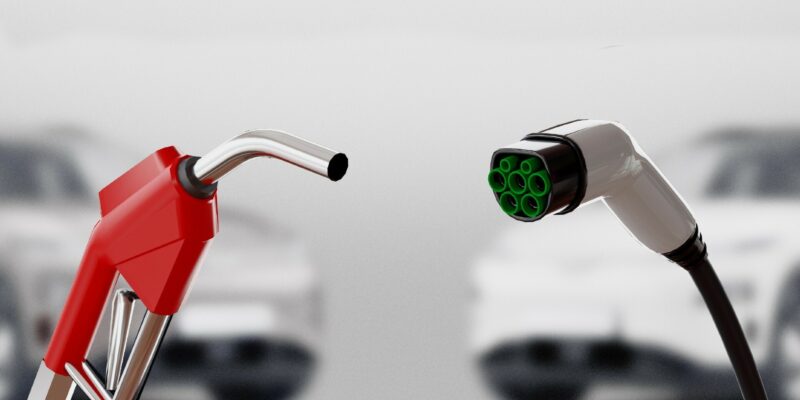
When you’re looking for a fresh set of wheels, there are all manner of considerations for you to think about. If you have a large family, size may be the most important factor. If you’re after a fun ride, you might prioritise straight-line speed and handling through corners. For some, the finer details are an irrelevance and all that matters is the colour of the paintwork and whether it’s easy on the eye.
For a lot of people, however, the key distinction is whether to opt for a petrol, diesel or electric car. Each offers its pros and cons, and certain types may be more suitable for one driver than they are for another. What you need to do is weigh up all the relevant information and make a decision that’s right for you and your driving habits.
So, which comes out on top when you compare diesel vs petrol? Are electric vehicles (EVs) better than both? Allow Jardine Motors to help you find the answers.
Which car is better – petrol or diesel?
Before we bring EVs into the debate, let’s compare diesel vs petrol models. Diesel cars have more than 60% of the market share, which goes to show just how popular they remain – even if shifting attitudes and the impending ban on new sales from 2030 means that this is set to change.
When choosing between diesel and petrol vehicles, there are some direct comparisons that can be made. For example, petrol itself is cheaper to buy and the models it powers typically cost less to both purchase and service. Petrol engines are usually quieter too, which can make for a more enjoyable driving experience.
The flip side is that diesel engines are more efficient, which can offset the extra cost of the fuel. They’re particularly suited to long journeys and they emit lower levels of CO2 than their petrol equivalents, although they will still be subject to charges for entering low-emission zones.
Diesel engines also tend to offer a greater deal of low-speed torque, but in truth when comparing diesel vs petrol cars the final decision is likely to come down to your driving habits. If you regularly undertake long journeys – for example because of work – a diesel car may prove the more sensible choice. But if you don’t rack up a lot of miles and only use your car sparingly, petrol might be the better option.
Are electric cars better for the environment?
In a word, yes. As we’ve already mentioned, diesel engines produce fewer CO2 emissions than petrol cars, although the latter emit lower levels of other harmful gases such as nitrogen. However, neither can compare to electric vehicles, which are emission-free and therefore do the most to contribute to the government’s plan to bring greenhouse gases to net zero by 2050.
In fact, recent studies from Transport & Environment reveal that EVs in Europe are almost three times cleaner than petrol and diesel equivalents. This takes into account everything, from resource extraction and manufacturing to the actual running of the vehicles.
The cost of running an electric car vs petrol car
When comparing the equivalent purchase prices of petrol, diesel or electric cars, the latter are likely to be the most expensive. However, the government do offer incentives for EVs in the form of a grant, which can entitle you to a discount on the initial cost. This scheme is due to end in 2023 but an electric model is still likely to cost you less in the long run.
The cost of recharging an EV is likely to vary depending on the type and location of the charge points, but refuelling a petrol or diesel model is more expensive. There are also fewer moving parts inside an EV, which means models that run on a conventional combustion engine require more regular maintenance and the repair bills can soon stack up.
Petrol, diesel or electric cars: What do the numbers tell us?
A greater societal focus on climate change combined with continual advances in green car technology means that EVs are becoming increasingly common and affordable. As the UK government pledges a ban on new petrol and diesel cars from 2030, the market is seeing a clear trend of a greater prevalence of low-emission vehicles. Recent data on new car registrations from the Society of Motor Manufacturers and Traders shows that:
- As of March 2021, sales of diesel models were down 46.9% compared to the first three months of 2020.
- For that same period, sales of petrol models were down 28.4%.
- By contrast, there were 31,779 registrations of battery electric vehicles in Q1 – an increase of 74.1% compared to the first quarter of 2020.
- Sales of plug-ins and hybrids were also up, 93.6% and 11.6% respectively.
- In 2020, petrol and diesel models had a combined market share of almost 80%. In 2021, that has fallen to just over 60%.
On the other hand, battery EVs, plug-ins and hybrids now make up more than 20%, compared to 12.5% the previous year.
So, are electric cars better than petrol cars?
In terms of their environmental impact, electric cars are unquestionably better than petrol or diesel models. Of course, there are more factors for drivers to take into account, including initial purchase price, running costs and practicality, so what’s ‘better’ for one individual may not be the same for another.
However, the 2030 ban on petrol and diesel cars is likely to mean a fall in demand, while the availability of spare parts is set to make repairs more difficult and potentially more expensive. Meanwhile, as demand for EVs increases and they form an even greater proportion of manufacturers’ ranges, production costs will fall and electric models will boast greater affordability.
Right now, it’s impossible to definitively say that electric cars are better than petrol cars, but the long-term picture certainly looks brighter for EVs than it does combustion models.
Choosing between diesel, petrol or electric? Speak to Jardine Motors
We understand it’s not an easy choice, but that’s why our friendly staff across our 60+ nationwide dealerships are on hand to help you make a decision.
We offer thousands of new and used models, including electric vehicles, from a wide range of premium brands and you can rest assured you’ll receive the high-quality service to match. Choosing your next petrol, diesel or electric car doesn’t have to be a chore, so why not get in touch today and see how Jardine Motors can help you.
You Might Also Like
Exploring The Impact Of The 2030 Ban On Petrol And Diesel Cars
Electric Car Maintenance: Everything You Need To Know
Green Number Plates And What They Could Mean For EV Drivers
Visit our YouTube channel where you can find car reviews and expert advice.



